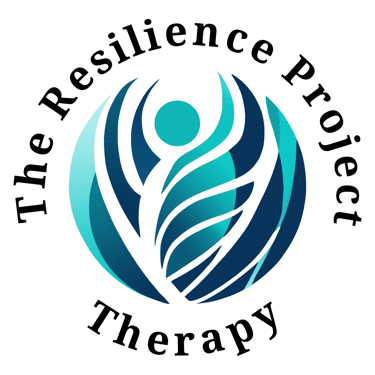The Art of Flourishing
Exploring the concept of a flourishing life, achieved through a balanced approach of routine, play, and reflection.
Christian Gray Hering, LCSW
3/26/20243 min read


As a therapist, I often see clients grappling with a sense of emptiness or dissatisfaction, despite achieving external markers of success. They might have fulfilling careers, loving families, or interesting hobbies, yet something feels missing. This yearning often points towards a deeper human desire: to live a truly flourishing life.
Flourishing isn't about fleeting happiness or achieving a specific goal. It's about living a life that feels meaningful and whole. This concept, explored by ancient philosophers like Aristotle, emphasizes the importance of balance between three key elements: routine, play, and reflection.
Let's delve into each of these elements and explore how they contribute to a flourishing life:
1. The Power of Routine:
In our fast-paced world, routine might sound restrictive. However, it provides a foundation of stability and predictability. Think of it as the fertile soil from which a vibrant life can grow. Routines help us manage daily tasks without constant decision fatigue. They also create space for developing healthy habits, which are essential for building the virtues Aristotle considered crucial for a good life (courage, temperance, etc.).
Building a Flourishing Routine:
Identify your core values: What truly matters to you? Aligning your routine with your values fosters a sense of purpose.
Schedule essential activities: This includes work, sleep, exercise, and spending time with loved ones.
Leave room for flexibility: Life throws curveballs. Don't get bogged down by a rigid schedule.
2. The Importance of Play:
Play isn't just for children. It's a crucial component of adult well-being. Aristotle used the term "schole," which refers to activities pursued for their own sake, fostering intellectual and spiritual growth. Play allows us to explore our interests, de-stress, and reconnect with the joy of simply being.
Reclaiming Your Playful Spirit:
Rediscover childhood passions: What did you enjoy doing before "adulting" took over? Reintroduce these activities into your life.
Experiment with new hobbies: Step outside your comfort zone and try something novel.
Embrace silliness: Laughter is a powerful tool for reducing stress and boosting mood. Make room for lightheartedness in your life.
3. The Value of Reflection:
Living on autopilot can lead to a sense of disconnection. Reflection, the conscious examination of your thoughts, feelings, and experiences, is key to self-awareness and growth. By reflecting on your actions and their consequences, you gain valuable insights and can make conscious choices to live a more aligned life.
Cultivating a Reflective Practice:
Journaling: Regular journaling allows you to explore your inner world and track your progress towards your goals [1].
Mindfulness meditation: Focus on the present moment and learn to observe your thoughts without judgment [2].
Gratitude exercises: Reflect on the good things in your life to increase positivity and well-being [3].
Processing it All: A Practical Approach
Now that we understand the significance of routine, play, and reflection, how do we integrate them into our lives? Here are some practical steps:
Start small: Choose one element to focus on initially. Begin with a simple routine, a new hobby, or a daily reflection practice.
Self-compassion is key: Change takes time. Don't be discouraged by setbacks or missed routines.
Be mindful of your individual needs: What works for one person might not work for another. Experiment and find what resonates with you.
Finding Your Flourish:
Remember, there's no one-size-fits-all recipe for a flourishing life. It's an ongoing journey of exploration and self-discovery. By incorporating routine, play, and reflection into your life, you can cultivate a sense of purpose, joy, and well-being. If you're struggling to find your balance, consider reaching out to a therapist who can help you navigate this path to a flourishing life.
Source List:
[1] Greater Good Science Center at the University of California, Berkeley. (n.d.). Journaling for Well-Being. https://greatergood.berkeley.edu/
[2] Mindful.org. (n.d.). What is Mindfulness?. https://www.mindful.org/
[3] Harvard Health Publishing. (2021, December 8). Giving thanks can make you happier. https://www.health.harvard.edu/healthbeat/giving-thanks-can-make-you-happier
The Resilience Project Therapy
Mailing
P.O. Box 832182
Richardson, TX 75083
Contacts








